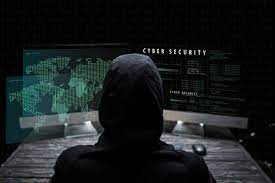In our tech-driven era, where everything from our morning alarms to our bedtime reading is digital, cybersecurity isn’t just a buzzword—it’s a necessity. With our increasing dependence on digital platforms for communication, shopping, banking, and entertainment, keeping our online presence secure is more important than ever. Let’s explore why cybersecurity matters, how it impacts our daily lives, and what we can do to boost our digital defenses.
What is Cybersecurity?
At its core, cybersecurity is about protecting our digital lives from unwanted intrusions. This involves a mix of practices, technologies, and processes to safeguard our networks, devices, programs, and data from attacks, damage, or unauthorized access. Think of it as the digital equivalent of locking your doors and windows at home to keep intruders out.
Why Should You Care About Cybersecurity?
-
Protecting Your Info: Imagine your private details—address, financial info, personal photos—falling into the wrong hands. Cybersecurity helps keep these details confidential and out of reach of cybercriminals.
-
Avoiding Financial Loss: Cyber attacks can cost you money, whether it’s through ransomware demands or the expense of recovering from a data breach. Good cybersecurity practices can help you avoid these costly situations.
-
Building Trust: For businesses, trust is everything. A data breach can shatter your reputation and lose customer trust. By prioritizing cybersecurity, businesses can assure customers that their data is safe, maintaining a solid reputation.
-
Keeping Things Running Smoothly: Cyber attacks can disrupt your daily life or business operations, causing downtime and lost productivity. A strong cybersecurity strategy helps ensure things keep running smoothly, even in the face of threats.
Key Components of Cybersecurity
-
Firewalls and Antivirus Software: These are your first line of defense, blocking unwanted traffic and detecting malicious software before it can cause harm.
-
Encryption: Think of it as scrambling your data so only authorized people can understand it. This is crucial for keeping your information safe during transmission and storage.
-
Multi-Factor Authentication (MFA): This adds an extra layer of security by requiring multiple forms of verification, making it harder for attackers to access your accounts.
-
Regular Updates and Patching: Keeping your software and systems updated ensures you’re protected against known vulnerabilities. It’s like keeping your house in good repair to prevent break-ins.
-
Employee Training and Awareness: Human error is often the weakest link in cybersecurity. Regular training can help everyone recognize and avoid potential threats.
Simple Steps to Boost Your Cybersecurity
-
Use Strong, Unique Passwords: Avoid easy-to-guess passwords, and don’t reuse the same password across different sites. Consider using a password manager to keep track of them.
-
Back-Up Your Data: Regular backups mean you won’t lose everything if you’re hit by a cyber attack or hardware failure.
-
Beware of Phishing Scams: Be cautious about clicking on links or downloading attachments from unknown sources. Always verify the sender’s authenticity.
-
Secure Your Wi-Fi: Use strong passwords and encryption for your home and business Wi-Fi networks to prevent unauthorized access.
-
Monitor for Suspicious Activity: Regularly check your accounts for any unusual activity and report anything suspicious immediately.
Conclusion
In our interconnected world, cybersecurity is essential. By understanding its importance and taking proactive steps, we can protect ourselves from the ever-present dangers in the digital landscape. Stay informed, stay vigilant, and make cybersecurity a priority to enjoy a safer online experience.

